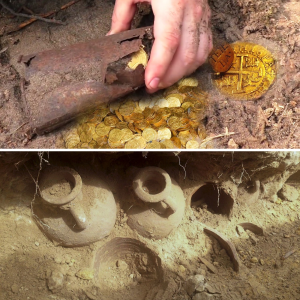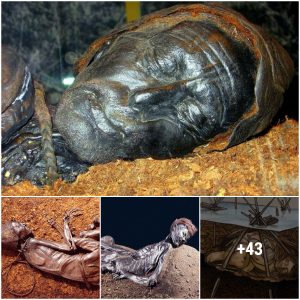Fossils of an ancient amphibian whale from 43 million years ago have been discovered in Egypt.
The Xinhua news agency reported that the fossilized bone fragments, including a large skull that had been fractured, a lower jaw bone with some remaining teeth, ribs and vertebrae of an ancient creature were being discovered. kept at the Center for Vertebrate Paleontology of the University of Mansoura (MUVP) in Dakahlia Province, northeast of the Egyptian capital Cairo.
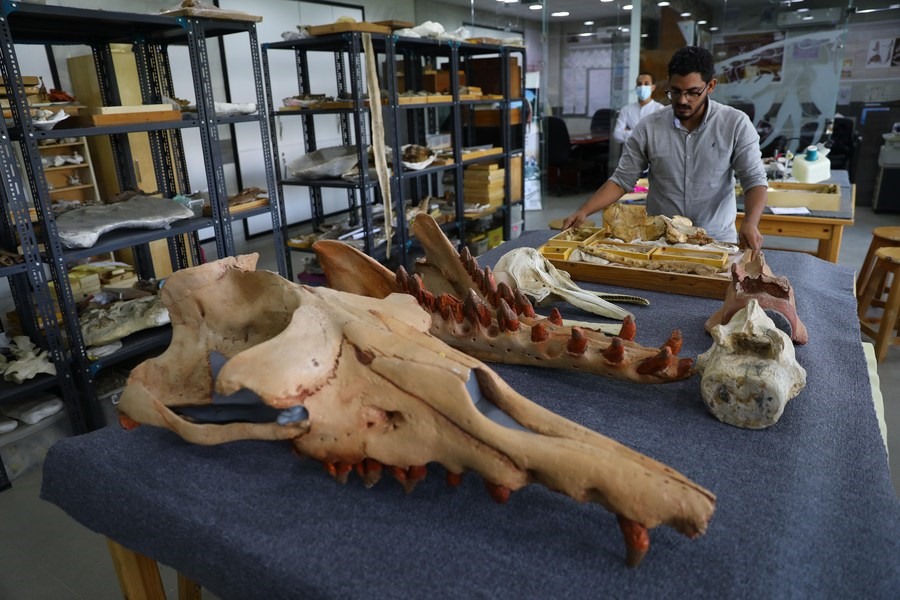
These fossil skeletons, dated 43 million years ago, belong to an ancient four-legged amphibian whale, unearthed from the rocks in the Fayum Depression, the western desert of Egypt.
According to the MUVP researchers, the discovery is considered a scientific leap forward in paleontology and zoology, and piece together the picture of the transition of whale ancestors from the land. immediately to the sea.
“This is a new genus and species because its anatomical features suggest that it is completely different from any other,” said Hesham Sallam, professor of vertebrate paleontology at the American University in Cairo. any other species previously known to man.
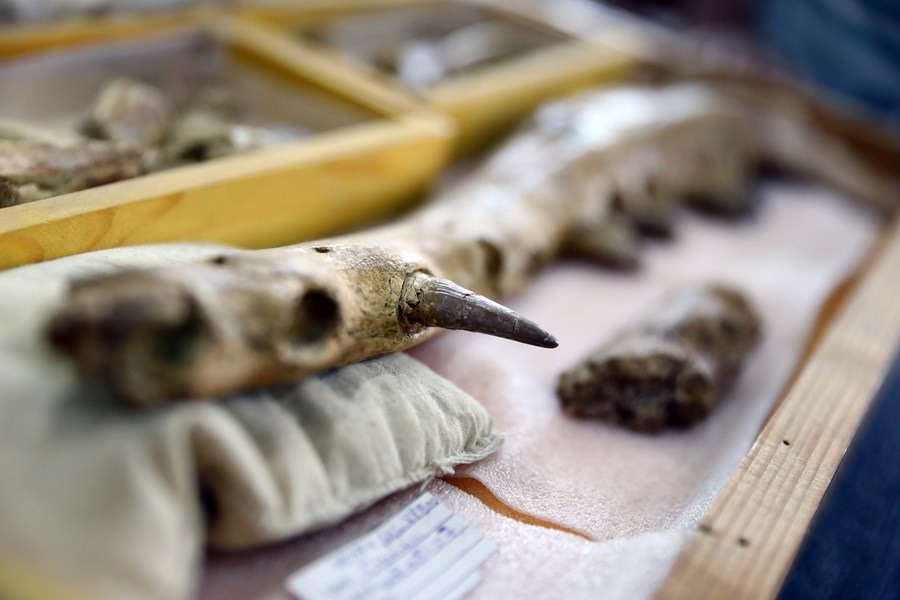
MUVP has named the new whale “Phiomicetus anubis” and the genus name “Phiomicetus” in honor of the Fayum Depression, while the species name “anubis” refers to Anubis, the ancient Egyptian dog-headed god. related to mummification and the afterlife.
“For the first time, we’ve registered a new genus and species for amphibian whales – a link between land-dwelling whales and species that today live in seas and oceans,” said Professor Sallam.
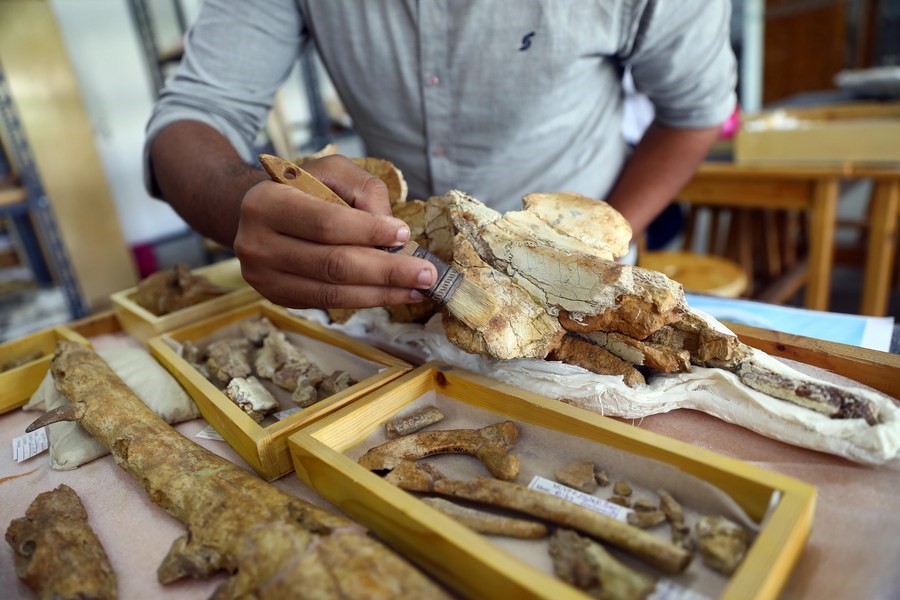
Lead author of the study, scientist Abdullah Gohar at MUVP, is busy recovering fossils of ancient whales – species unknown in the world. He said the whale Phiomicetus anubis up to 3m long and weighs about 600kg, could be a carnivore.
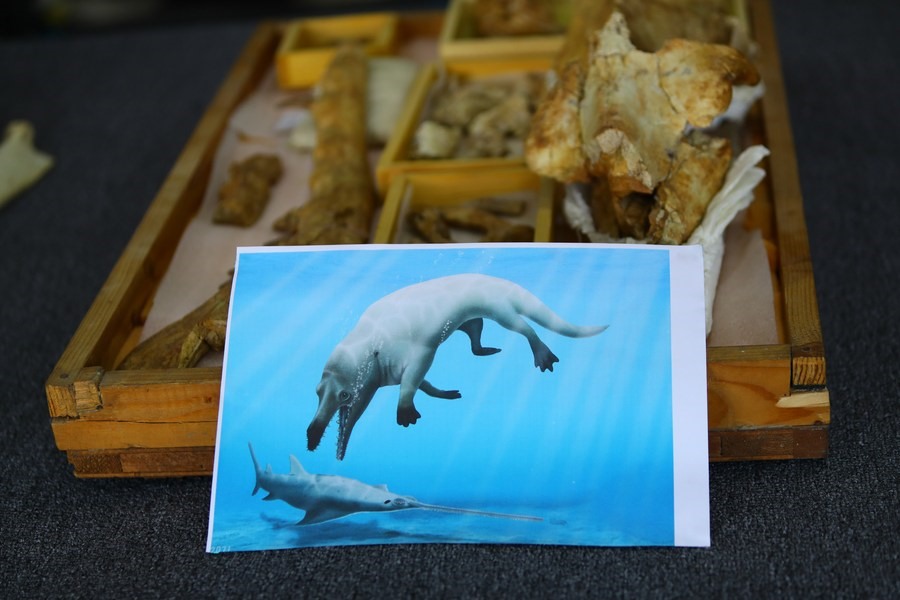
An expedition led by Mohamed Sameh from the Egyptian Agency for Environmental Affairs, who is also a co-author of the study, discovered ancient whale fossils, which were then shipped to MUVP. to research.
The results of the study were published recently in the journal Proceedings of the Royal Society B.
